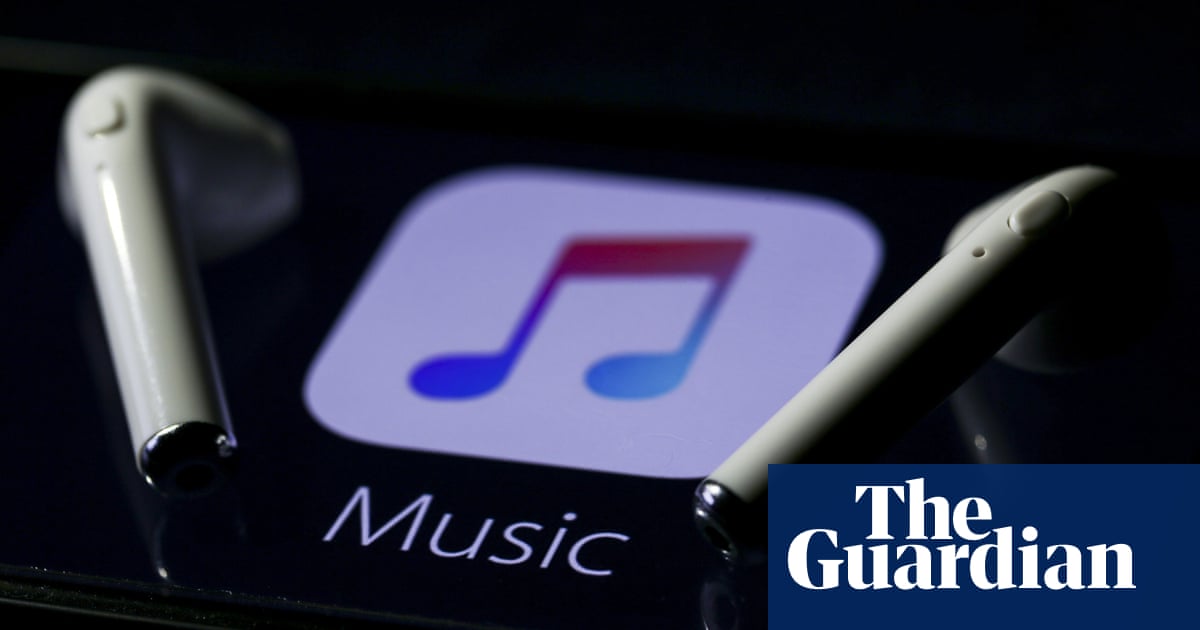
Apple is to be fined €500m (£427m) for allegedly hobbling rivals in the music streaming market.
The Financial Times reported that the EU’s executive arm, the European Commission, will hand down the punishment after a long-running investigation.
Why does Apple face the prospect of a fine?
After a complaint by Spotify in 2019, the EU has been investigating Apple’s position in the music streaming app market. It has whittled down its investigation to focus on certain restrictions imposed on app developers by Apple. These restrictions prevent developers such as Spotify from telling iPhone and iPad users about cheaper music subscriptions that are available outside the App Store. Spotify argues that this benefits the tech company’s rival app, Apple Music.
The case is the latest example of legal wrangling over Apple’s App Store – a key digital gateway and source of complaint from companies that use it.
Spotify is a longstanding critic of Apple’s App Store rules, which include charging a 30% fee on apps and in-app purchases. Apple moved recently to meet some of those concerns, under pressure from the EU’s Digital Markets Act (DMA), by announcing that it will allow EU customers to download apps without going through its own store.
What does the EU think of Apple’s behaviour?
The EU declined to comment. But it indicated it would punish Apple in February last year when it published a new statement of objections over the case, a formal step in which Brussels sets out its concerns about a company’s behaviour. The commission said it viewed the restrictions as “unfair trading conditions” that breach article 102 of the treaty on the functioning of the European Union – or in simpler terms, abuse of a dominant position in a specific market.
The commission said it was concerned that the restrictions prevent developers from “informing consumers about where and how to subscribe to streaming services at lower prices”.
What happens next?
The FT reported that the commission will announce the fine early next month. The maximum penalty a company can face for anti-competitive behaviour is capped at 10% of its global turnover. In the case of Apple, this points to a potential fine of $30bn (£24bn) although, according to the FT, the final figure will be substantially lower. Apple will also be able to appeal against any decision by the commission.
What do Apple and Spotify say?
Both declined to comment on Monday. Last year Apple said its store had helped Spotify become Europe’s top music streaming service and it hoped the commission would “end its pursuit of a complaint that has no merit”. According to the FT, that seems unlikely.
after newsletter promotion
Spotify, for its part, has said its complaint against Apple is about creating a “level playing field”. It has argued that the App Store restrictions hand an advantage to Apple’s own streaming service, Apple Music.
What do experts say?
Anne Witt, a professor of antitrust law at EDHEC business school in France, says Apple already faces a tougher regulatory environment thanks to the introduction of the DMA – which covers big digital “gatekeepers” such as Apple. Indeed, Apple has opened up its App Store to competition because of that legislation. Witt says if Apple is punished after the Spotify complaint, it will show that the commission does not expect the DMA to overshadow EU competition procedures.
“The commission has stressed from the beginning that the DMA was not supposed to replace, but complement the competition rules,” says Witt. “This decision is probably meant to confirm this commitment. Whether it will work out that way in the long run is another matter as the DMA is bound to be a much more effective (but also blunter) tool.”
The Open Markets Institute, which researches the impact of corporate monopolies, says the size of the reported fine will not hurt Apple.
“It’s far too small to give Apple any meaningful incentive to play by the rules – €500m is what it earns in revenue in roughly half a day,” says Max von Thun, the OMI’s Europe director.








